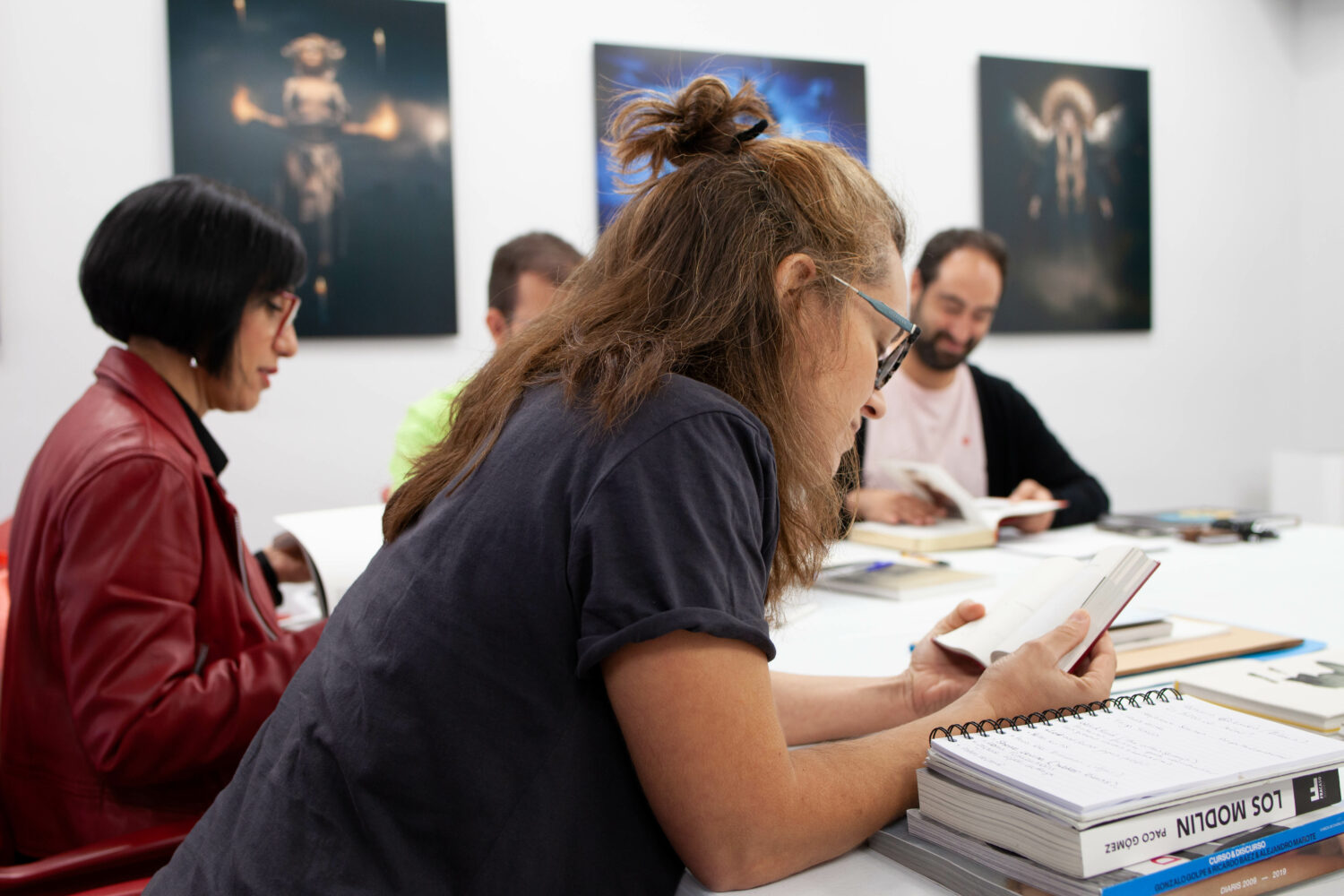We are currently witnessing a boom in the interest of visual narrators when it comes to dealing with archives or incorporating them in their practices. ‘Archive fever’ (or, mal d’ archive), in the words of Algerian-French philosopher Jacques Derrida, has finally conquered the world of photography. Over the last decade, the archive has been used, over-used and abused, covering a variety of forms and operations: from the appropriation of archival images, documents or language next to original visual work, to the archive taking over and the whole artwork performing the archive; from inoffensive ludic appropriations of the domestic and the quotidian to ruthless revisions of dominant narratives and a critical review of photography’s cornerstones. However, when it comes to an aware implementation and dialogue with the archive’s modes, most of us find ourselves struggling. We are far from familiar with the its nature and potential.
The workshop is dedicated to approaching, examining and comprehending archival practices through different angles. It delves into the theory of archive – what an archive implies and what precisely its modes refer to – through the eyes of prominent thinkers such as Derrida, Hal Foster, Ariella Aïsha Azoulay and Aleida Assmann. Departing from their theoretical formulations regarding the archive, it detects different variations of use and archival eco-systems that reinforce the co-existence of an eclectic and hybrid variety of operations and languages (images, texts, contemporary documentary, activism, and revisionist attitudes).It also proposes studying and questioning how the archive resurfaces in the work of specific visual artists beyond the world of photography, while drawing special emphasis on (photo)book visual narrative and cinematic narrative (the essay film). In the course of the sessions, a fascinating array of themes is addressed with the objective to heighten the assistants’ criticality not just towards their medium but towards the world – among them, remembrance and forgetfulness; mnemonic ruins versus fictionalisation; atlases as virtual and mental maps; invisibility versus the claim of civil rights, and different identity areas encompassing the individual and the collective, the centre and the periphery.
The strong theoretical aspect of the content can be also accompanied by exercises of practical nature, with the objective to implement all these reflections on the participants’ ongoing projects and practices based on archives and archival modes, and consider their formalisation in different media such as the book or the installation.
Reading sessions, group tutorials, personal research, contributions in public, film screenings, and a series of guests will be part of our methodology.
This workshop is addressed to artists, photographers, archivists, filmmakers, historians of art, and any person engaging in the area of visual practice. Candidates with a project or a research subject in progress will be first in the list of preference.
Duration may vary: from two-days to a seven-day workshop.
More information upon request.
Workshop Record

El Observatorio. Barcelona. April 12-13-14, 2024.
AFoco. Córdoba, May, 20-21-22, 2023.
Dispara. A Estrada, Pontevedra, Spain. March 26, 2023.
Zoetrope. Athens, December 18-19, 2021.
Grisart International School of Photography, Barcelona, 2021, 2022, 2023.